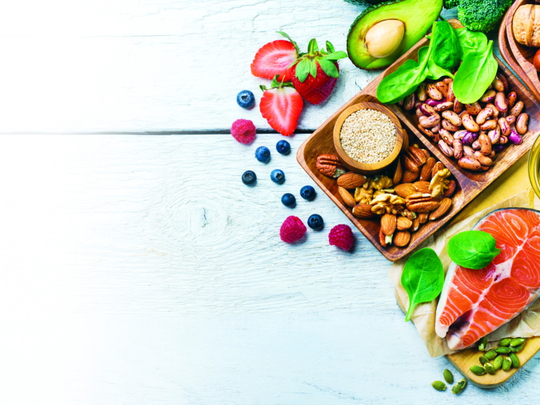
Last month, a study from the University of Sydney linked parental diet with the effect it has on their offspring’s immunity. The findings, which were published in Biological Reviews, found that intergenerational immunological response still occurred regardless of whether their diet was normal or not once they’re born. Despite what damage you may be inflicting on your future child’s immunity with your diet, if you personally want to remain free from winter colds and flu, it’s essential eat healthily. Staying healthy is the job of your body’s immune system. The immune system is a series of biological processes and structures that protects you from disease. If your immune system is weak, you become more susceptible to diseases and infections such as flu.
According to the Mayo Clinic, research points to a direct link between diet and inflammation, which is the body’s response to disease or injury. Inflammation causes swelling and pain in the affected part of the body. The study found a direct link between certain foods and inflammation or pain. Unhealthy foods were generally found to be pro-inflammatory. Processed meats, which tend to be high in trans and saturated fats, foods that were high in sugar such as pastries and foods containing preservatives and refined carbohydrates, were found to cause inflammation.
Anti-inflammatory foods such as fish, which contains omega-3 fats, and colourful fruits that are high in antioxidants were also found to contain analgesic properties, or natural painkillers. So not only is a poor diet bad for the immune system but it may actually make you sick.
So what steps should you take to ensure your body has the best possible chance of fighting infections and that you aren’t actually making yourself sick? Often it can be difficult to make good decisions when you’re confronted with a wealth of cheap and convenient unhealthy options, especially if you have kids. Better Health sat down with Zeina Younes, Dietician at DHA, to discover how to tailor our diet towards avoiding that dreaded winter flu.
If someone frequently gets sick at this time of year, what would you recommend as a diet?
One of the things you should focus on as a way of preventing cold and flu is eating anything that contains vitamin C. Vitamin C is an antioxidant. Antioxidants are immune protective and they fight inflammation. Eat as many coloured vegetables as you can. You can eat green vegetables, yellow peppers and broccoli. Fruits such as oranges and grapefruit are very good for the prevention or delay of cold and flu. Vitamin E is also rich in antioxidants, which you can find in vegetable oils and raw nuts such as almonds, walnuts and pistachios. Frozen vegetables contain many phytochemicals. If you eat a lot of unhealthy food, there will be a lot of free radical inflammation of your body. I’m talking about bad fats that can be found in fast food. Fried foods and processed foods cause an increase in free radical production, which lowers your immunity and causes stress and inflammation, which is bad for the immune system.
What if I’m a vegan?
Vegans need to worry more about getting enough iron and vitamin B12. You need to find ways to increase iron absorption because protein sources are rich sources of iron. Iron is not absorbed as much from plant sources as it is from animal sources. If you add vitamin C in through foods such as lentils, then it can increase the iron absorption from plant-based foods. For vitamin B12 you need a regular check-up and if necessary you may need to start taking supplements because vitamin B12 is only found in meat. You should also have yourself checked for folic acid.
How important is the time when you eat for the immune system?
It affects your metabolism more if anything. In every person, physiologically we burn most calories in the morning. We burn the least calories in the evening. Having consistent meals helps keep your digestion healthy and improve your metabolism. I don’t recommend eating late because food is not digested properly. Eating late can also encourage acid reflux, which is very bad for the digestive blood cells. If you suffer from poor digestion, it will have an adverse effect on your immune system.
How do you encourage kids to eat healthily?
Children are often picky eaters so I would suggest getting them involved in the preparation of the food. Get kids involved in making food for their lunch boxes. Parents also need to be a perfect example. They need to start eating healthily before they can promote this to their kids. Something I do with kids is make faces and shapes with the fruit and vegetables on the plate. We use cherry tomatoes as eyes and cucumber slices as a mouth. I also give fresh juices to kids.
What about omega-3?
Omega-3 is mostly found in fish and raw nuts. White fish is a good source and so is salmon. Although salmon contains fat, it’s good fat that are rich in omega-3, which has anti-inflammatory qualities. These fats are also good for triglycerides levels in the blood and are also very good for blood sugar levels. You should eat salmon in moderation, though, because too many calories is not good for you. I recommend eating oily fish two to three times a week.
How significant is the way I cook the food?
The way that you prepare food can have a significant impact on your health. You should avoid fried and fast foods, as these are bad for immunity.
Try healthy cooking options such as boiling, poaching or steaming. You can even try not cooking at all. Raw vegetables such as carrot sticks are great options.












